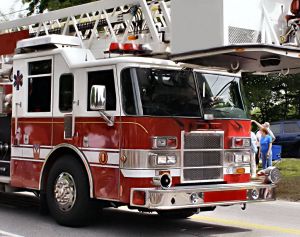If you are a civil service member who has been injured on the job in Boston, you may be confused about the benefits you are entitled to. Our experienced Boston workers’ compensation attorneys understand your confusion and we can help guide you through the process.

A recent case came out of Rhode Island dealing with the confusion surrounding workers’ compensation cases. Casale v. City of Cranston, No. 2010-162-Appeal (R.I. S.Ct. Apr. 4, 2012). This case involves a firefighter named James Casale (Casale or plaintiff) who was injured in a collision while he was driving to the site of an emergency. Plaintiff was employed as a firefighter and fire-truck driver for the City of Cranston (Cranston or city).
On the date of the collision the party who was at fault for the accident was driving his vehicle negligently and because of this negligence the plaintiff and the at-fault driver collided. This negligent driver was uninsured at the time of the collision.
Because of this accident, the plaintiff suffered severe injuries. Plaintiff was unable to perform his job related activities for a significant period of time. When a firefighter or civil service member is injured while on the job, the government employer is responsible for providing compensation. This compensation for injuries sustained while on the job is often referred to as injured-on-duty (IOD) benefits. Consistent with the state statutes governing IOD benefits, the city awarded plaintiff benefits greater than $50,000.
Although the plaintiff had received the benefits from the City, he proceeded to enter a claim with his insurance company (Amica) for uninsured motorist (UM) benefits. Consistent with the contractual duties of Amica, it paid the plaintiff the difference between the policy limit of $100,000 and the amount plaintiff received in IOD benefits from the city. This insurance claim is what caused the dispute between the city and the plaintiff.
UM is a type of coverage that is offered through your automobile insurance carrier. In many states this type of coverage is required, although that requirement is not in every state. When you purchase UM, your insurance company agrees to stand in the shoes of an at-fault uninsured driver who causes an accident with you. This is sometimes seen as a third-party liability because the insurance company is not a party to the collision.
Once the city discovered that the plaintiff received these UM benefits from Amica, the city argued that it was entitled to a reimbursement for the amount the city had paid in IOD benefits. The city looked to the state statute governing liability of third parties for damages. The purpose of this statute is to prevent an injured party from collecting double the amount of benefits. The city argued that the insurance company should stand in the shoes of the liable party and because of this; the city should not have had to pay IOD benefits.
Plaintiff countered this by arguing that he was not collecting double the benefits, in fact he only received the total of $100,000. Plaintiff had not collected double what he was entitled to because the insurance company decreased the amount of IOD benefits he had received from the UM policy limits.
The lower court originally heard this case and held on behalf of the plaintiff. The Rhode Island Supreme court upheld this lower court decision and because the plaintiff had not collected double the damages, the city was not entitled to reimbursement.
This case illustrates how critical it is to understand the benefits you are entitled to before you apply for benefits.
If you have been involved in a work related accident, contact the injury attorneys at Jeffrey Glassman Injury Lawyers to schedule your free consultation. Call 888-367-2900.
 Massachusetts Workers Compensation Lawyers Blog
Massachusetts Workers Compensation Lawyers Blog

